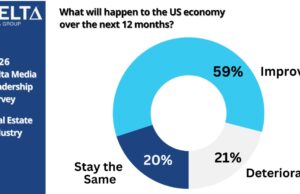Move Forward, Not Backward on Mortgage Reforms, CRL Tells Senate Banking
WASHINGTON, D.C. – (RealEstateRama) — The U.S. Senate Committee on Banking, Housing and Urban Affairs convened a hearing to assess the effects of Consumer Finance Regulation. Mike Calhoun, President of the Center for Responsible Lending (CRL) offered comments for the committee’s record and issued the following statement.
In a display of legislative wisdom, Congress created the Consumer Financial Protection Bureau (CFPB) with its enactment of the Dodd-Frank Wall Street Reform and Consumer Protection Act. The two were necessary remedies to heal the financial wounds wrought by 8.2 million families who lost their homes to foreclosure since 2004. Additionally the actions sought to systemically prevent any recurrence of the 2008 Great Recession.
By addressing the frontline abuses that caused the housing crisis, CFPB’s Ability-to-Repay threshold and the Qualified Mortgage (QM) rule provide both stability and bright line standards to the financial market. The two initiatives are working to move the marketplace away from the high-risk, and unsustainable loans that caused the housing crisis. Abusive loan terms and lender practices bear responsibility for the foreclosure tsunami that disproportionately stripped wealth from communities of color. ‘Risky borrowers’ had neither the power nor authority to cause a housing market meltdown.
Contrary to some predictions, these mortgage reforms have helped to support sustainable homeownership and wealth-building opportunities for lower-wealth households. The latest Home Mortgage Disclosure Act (HMDA) data shows that the now two-year old Ability to-Repay standard and QM rule have not curbed the availability of mortgage credit. Additionally, surveys of senior loan officers by the Federal Reserve found no significant changes to lending since the QM rule was enacted in 2014.
Now, when more than a million families remain seriously behind on their mortgage payments and just under half million more are in some stage of foreclosure, it is not a time to move backwards into the same failed and reckless lending practices. Instead, we must continue to move forward to a more sustained housing recovery that benefits consumers, lenders and investors alike.
Source: Responsible Lending










